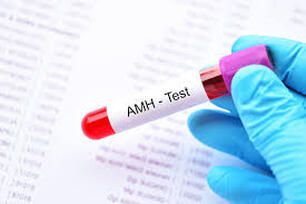 Anti-Müllerian Hormone (AMH) has been used in fertility clinics for a long time to predict a woman’s chances of conception due to ovarian reserve and is even used to determine how many follicle stimulating drugs they should be taking during IVF cycles. But researchers have called for a more reliable test as their evidence shows that the tests are widely inaccurate. A further US study, which has been reviewed by NHS England, showed that the chances of getting pregnant naturally were no different for women with low AMH and FSH compared to women with normal readings. So my biggest plea to women who have been given what sounds like the nail in the coffin for fertility is, please don’t worry! IVF clinics can sometimes scare women into believing that their time is running out and that they must have treatment now before it’s too late. Listen to your intuition and do what feels right. Don’t let fear become the deciding factor on your fertility pathway. Levels of AMH and FSH being found to have little effect on fertility isn’t really new to me. I’ve known patients with a poor prognosis go on to naturally conceive very happy babies. What is concerning me is that IVF clinics are using these results to predetermine the amount of drugs and the types of fertility treatments available to you. Data from the 2012 study by the NIHR Manchester Biomedical Research Centre into AMH tests showed that unless the samples were stored in a very specific way, the results of the tests could differ to produce readings up to 72% higher. The difficulty is that with clinics storing and transporting their samples in varying ways, the quality of the test result is somewhat open to interpretation. I have always advised patients to have three AMH samples and take an average score, but the NHS will only grant patients a single test. So unless you’re prepared to pay, you have a number on your head that you carry around with you. This number then determines which doorways are open to you and whether you will be expected to take a very high dosage of follicle stimulating drugs. I therefore urge women who are in this boat to have further blood testing so that you can be armed with a number that might be truer to your actual reading before you go worrying yourselves that your fertile days are numbered. Sources: Anti-Müllerian hormone: poor assay reproducibility in a large cohort of subjects suggests sample instability, Oybek Rustamov, Alexander Smith, Stephen A. Roberts, Allen P. Yates, Cheryl Fitzgerald, Monica Krishnan, Luciano G. Nardo, Philip W. Pemberton, Human Reproduction, Volume 27, Issue 10, October 2012, https://doi.org/10.1093/humrep/des260 Hormonal fertility tests, ‘waste of time and money’, October 2017, reviewed by NHS England, https://www.nhs.uk/news/pregnancy-and-child/hormonal-fertility-tests-waste-time-and-money/
0 Comments
|
AuthorVerity Allen - BSc, BA, MBAcC, Lic Ac Archives
April 2024
Categories |

 RSS Feed
RSS Feed
